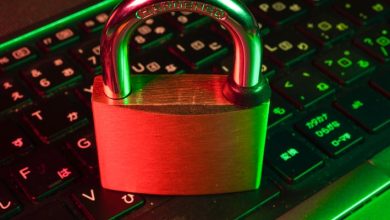The Importance of Regular Security Audits
- The Benefits of Regular Security Audits
- Protecting Your Data with Routine Audits
- Preventing Cyber Attacks Through Audits
- Ensuring Compliance with Security Audits
- The Role of Audits in Strengthening Security Measures
- Key Components of a Successful Security Audit
The Benefits of Regular Security Audits
Regular security audits are essential for any organization to ensure the safety and integrity of their data and systems. These audits help identify vulnerabilities and weaknesses in the security infrastructure, allowing for timely remediation before any potential breaches occur. By conducting regular security audits, businesses can stay one step ahead of cyber threats and protect their sensitive information from falling into the wrong hands.
One of the key benefits of regular security audits is the ability to detect and address security gaps before they are exploited by malicious actors. By proactively identifying vulnerabilities in the system, organizations can implement necessary security measures to prevent data breaches and cyber attacks. This proactive approach to security not only protects the organization’s assets but also helps maintain customer trust and loyalty.
Moreover, regular security audits can also help organizations comply with industry regulations and standards. Many regulatory bodies require businesses to conduct regular security assessments to ensure the protection of sensitive data. By staying compliant with these regulations, organizations can avoid hefty fines and legal consequences that may arise from non-compliance.
In addition, conducting regular security audits can also help organizations save money in the long run. By identifying and addressing security issues early on, businesses can prevent costly data breaches and cyber attacks that could result in financial losses and reputational damage. Investing in regular security audits is a proactive measure that can ultimately save organizations from the high costs associated with recovering from a security incident.
Overall, the benefits of regular security audits cannot be overstated. From protecting sensitive data to staying compliant with regulations and saving money, conducting regular security assessments is a crucial aspect of maintaining a strong and secure cybersecurity posture. Organizations that prioritize security audits demonstrate a commitment to safeguarding their assets and maintaining the trust of their customers and stakeholders.
Protecting Your Data with Routine Audits
Regular security audits are essential for protecting your valuable data from potential threats and breaches. By conducting routine audits, you can identify vulnerabilities in your systems and take necessary measures to address them before they are exploited by malicious actors. This proactive approach to data security can help prevent costly data breaches and safeguard your organization’s reputation.
During a security audit, experts will assess your systems, networks, and processes to identify any weaknesses that could be exploited by cybercriminals. They will also review your security policies and procedures to ensure they are up to date and effective in mitigating risks. By regularly conducting these audits, you can stay one step ahead of cyber threats and ensure that your data remains secure.
In addition to identifying vulnerabilities, security audits can also help you comply with industry regulations and standards. Many regulatory bodies require organizations to regularly assess their security measures to protect sensitive data. By conducting routine audits, you can demonstrate your commitment to data security and compliance, which can help you avoid costly fines and penalties.
Overall, protecting your data with routine audits is a crucial aspect of maintaining a strong security posture. By staying proactive and regularly assessing your systems and processes, you can identify and address potential vulnerabilities before they lead to a data breach. This proactive approach can help you protect your organization’s sensitive information and maintain the trust of your customers and stakeholders.
Preventing Cyber Attacks Through Audits
Regular **security audits** are crucial in **preventing cyber attacks** and ensuring the **safety** of your **digital assets**. By conducting **audits** on a consistent basis, you can **identify vulnerabilities** in your **network** and **systems** before **hackers** have the chance to exploit them.
One of the key benefits of **security audits** is that they provide **insight** into the **current state** of your **cybersecurity** measures. By **evaluating** your **security protocols** and **practices**, you can **determine** where **weaknesses** exist and take **action** to **strengthen** them. This **proactive approach** can **significantly reduce** the **risk** of a **cyber attack** and **minimize** the **potential damage** to your **organization**.
In addition to **identifying vulnerabilities**, **security audits** can also help **detect** any **unauthorized access** to your **network** or **sensitive data**. By **monitoring** **network traffic** and **system logs**, **auditors** can **spot** any **suspicious activity** that may **indicate** a **breach**. This **early detection** can **enable** you to **respond** quickly and **contain** the **threat** before it **escalates**.
Furthermore, **security audits** can **assist** in **compliance** with **regulatory requirements** and **industry standards**. Many **organizations** are **subject** to **specific** **security regulations** that **mandate** regular **audits** to **ensure** **compliance**. By **conducting** **audits** on a **routine basis**, you can **demonstrate** your **commitment** to **protecting** **data** and **maintaining** a **secure** **environment** for your **stakeholders**.
Overall, **security audits** are a **critical** **component** of a **comprehensive** **cybersecurity** **strategy**. By **proactively** **assessing** your **security posture** and **addressing** any **weaknesses**, you can **enhance** your **defenses** against **cyber threats** and **safeguard** your **digital assets**. **Investing** in **regular audits** is **essential** for **protecting** your **organization** from **cyber attacks** and **maintaining** **trust** with your **customers** and **partners**.
Ensuring Compliance with Security Audits
Regular security audits are essential to ensure that an organization’s security measures are up to date and effective. **Ensuring compliance** with these audits is crucial to maintaining a strong security posture. **Organizations** must take these audits seriously and address any **vulnerabilities** or weaknesses that are identified.
One way to ensure compliance with security audits is to establish clear **policies** and procedures for **security** measures. This includes **regular** training for employees on **security** best practices and protocols. By **educating** employees on the importance of **security** measures, organizations can help **prevent** **breaches** and **compliance** issues.
Another important aspect of ensuring compliance with security audits is to regularly **monitor** and **evaluate** the effectiveness of **security** measures. This includes **conducting** regular **risk assessments** and **penetration testing** to identify any **weaknesses** in the **security** infrastructure. By **proactively** addressing these **issues**, organizations can **strengthen** their **security** posture and **reduce** the risk of **breaches**.
In addition to **monitoring** and **evaluating** **security** measures, organizations should also **document** and **track** all **security** **incidents** and **responses**. This **documentation** can help **organizations** identify **trends** and **patterns** in **security** **breaches** and **compliance** issues, allowing them to **take** **corrective** action **quickly**.
Overall, ensuring compliance with security audits is a **critical** aspect of **maintaining** a strong **security** posture. By **establishing** clear **policies** and procedures, **monitoring** and **evaluating** **security** measures, and **documenting** **security** **incidents**, organizations can **demonstrate** their commitment to **security** and **protect** their **data** and **assets** from **threats**.
The Role of Audits in Strengthening Security Measures
Regular security audits play a crucial role in enhancing the overall security measures of an organization. These audits involve a comprehensive review of the existing security protocols, systems, and processes to identify any vulnerabilities or weaknesses that could potentially be exploited by malicious actors. By conducting audits on a regular basis, organizations can proactively address security gaps and strengthen their defenses against cyber threats.
One of the key benefits of security audits is that they provide valuable insights into the effectiveness of existing security measures. By analyzing the findings of the audit, organizations can identify areas where improvements are needed and take corrective actions to mitigate risks. This proactive approach helps organizations stay ahead of potential security threats and prevent security breaches before they occur.
In addition to identifying vulnerabilities, security audits also help organizations ensure compliance with industry regulations and standards. Many regulatory bodies require organizations to conduct regular security audits to demonstrate their commitment to protecting sensitive data and maintaining a secure environment for their stakeholders. By staying compliant with these regulations, organizations can avoid costly fines and reputational damage that could result from non-compliance.
Furthermore, security audits help organizations build trust with their customers, partners, and other stakeholders. By demonstrating a commitment to security through regular audits, organizations can reassure stakeholders that their data is being protected and that appropriate measures are in place to safeguard against security threats. This trust can be a valuable asset for organizations looking to attract new customers, retain existing ones, and build strong relationships with partners.
Overall, the role of audits in strengthening security measures cannot be overstated. By conducting regular audits, organizations can proactively identify and address security vulnerabilities, ensure compliance with regulations, and build trust with stakeholders. Investing in security audits is a proactive and cost-effective way for organizations to enhance their security posture and protect their valuable assets from cyber threats.
Key Components of a Successful Security Audit
When conducting a security audit, there are several key components that are essential for ensuring its success. These components help to identify vulnerabilities, assess risks, and develop strategies to mitigate potential threats. Here are some of the key components of a successful security audit:
- Comprehensive Assessment: A successful security audit begins with a comprehensive assessment of the organization’s current security measures. This includes evaluating existing policies, procedures, and technologies to identify any weaknesses or gaps in security.
- Risk Analysis: Conducting a thorough risk analysis is crucial for understanding the potential threats facing the organization. This involves identifying potential risks, assessing their likelihood and impact, and prioritizing them based on their severity.
- Penetration Testing: Penetration testing, also known as ethical hacking, involves simulating real-world cyber attacks to identify vulnerabilities in the organization’s systems. This helps to uncover weaknesses that could be exploited by malicious actors.
- Compliance Review: Ensuring compliance with relevant laws, regulations, and industry standards is an important aspect of a security audit. This involves reviewing policies and procedures to ensure they align with legal requirements and best practices.
- Documentation and Reporting: Documenting the findings of the security audit and preparing a detailed report is essential for communicating the results to key stakeholders. The report should include an overview of the audit process, identified vulnerabilities, and recommendations for improvement.
By incorporating these key components into a security audit, organizations can effectively assess their security posture, identify potential risks, and implement measures to enhance their overall security. Regular security audits help to ensure that the organization’s security measures remain effective and up-to-date in the face of evolving threats.



